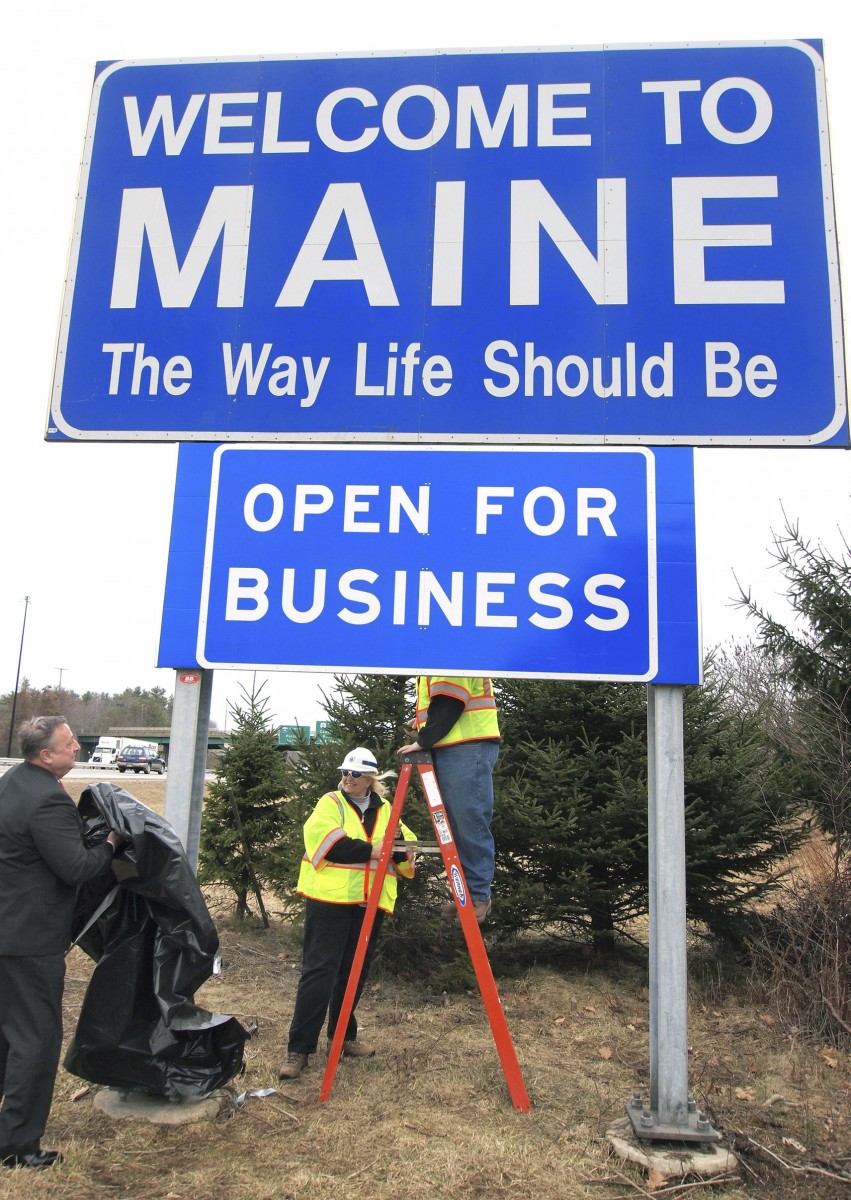
Maine’s clean energy legislation has spurred more than $2 billion in local investment and created at least 2,500 jobs in the Pine Tree State. That isn’t stopping some state lawmakers from trying to weaken and kill these laws, as the local political puppets do the will of their fossil fuel masters, the Koch brothers.
A quick reminder: there’s a coordinated national campaign to dismantle renewable portfolio standards (RPS) at the state level. Behind the campaign is the American Legislative Exchange Council (ALEC), who we’ve covered quite a bit before. Behind ALEC is the Heartland Institute and the Koch brothers.It’s a scene playing out in state capitols around the country — from Kansas to Missouri to Michigan to North Carolina, and now in Maine. State legislators, who typically receive hearty contributions from the Heartland Institute, Big Fossils, and local front groups who are wholly funded by the former, introduce legislation that was drafted by ALEC (a “corporate bill mill”) with the help of Heartland and the Big Fossils. The state legislators then present biased studies created by compromised think tanks that are funded by Heartland and the big fossils to support this boilerplate legislation. The legislation, of course, written to benefit Big Fossils — and the Koch brothers — and not the people of the respective states, where renewable portfolio standards are having great positive economic and environmental impact.
(For a good overview of ALEC’s work to bully state legislators into weakening these laws that undeniably help the economies and environments of the states in which they’re passed, check out this NRDC Action Fund post.)
Up in Maine, some local groups are asking, “Why do two rich men from Kansas want to dismantle Maine's renewable energy policy?” Anew report just published by the Maine People’s Alliance, Maine’s Majority Education Fund, and the Maine Conservation Alliance (PDF) seeks to answer that question for Mainers.
The authors explain:
Over the past two years, the Koch brothers and their proxies have worked to undermine Maine’s RPS through a campaign co-sponsored by the Heartland Institute and ALEC. Governor [Paul] LePage and his allies, including Sen. [Mike] Thibodeau in 2012 and Senator Edward Youngblood in 2013, have introduced legislation that would change Maine’s rules to include large hydropower as part of the calculation of the RPS. If large hydro were included in the calculation of the RPS, fewer of Maine’s own renewable resources would be used to meet the standard. These bills are part of a systematic attempt to dampen the growth of renewable energy generation nationally. ALEC and the Heartland Institute have targeted states’ RPS with model legislation called the “Electricity Freedom Act.” This year, sixteen other states have introduced legislation to weaken renewable energy standards. This model legislation is linked to what the Bangor Daily News called “a biased report” released by BHI in September 2012. That BHI report incorrectly asserted that the RPS creates an economic barrier for states. The report was released through the Maine Heritage Policy Center, part of the State Policy Network.
That “biased report” they mention was written by the Beacon Hill Institute, a conservative think tank based out of Suffolk University. The Beacon Hill Institute has made something of a cottage industry out of writing reports that say whatever the Koch brothers want about how RPSs impact state economies. And, yes, the Koch brothers pay handsomely for this service, nearly $1 million in 2010 alone.
Governor Paul LePage and the Koch-puppet state senators, especially Sen. Thibodeau, regularly cite these flawed BHI reports while working to dismantle Maine’s RPS. Of course these politicians can be directly tied to the Kochs:
A number of lawmakers have significant ties to the Koch machine. One of them is state Senator Mike Thibodeau, currently the Senate Minority Leader, a Republican from Winterport who is leading the charge to undermine Maine's Renewable Portfolio Standard. Sen. Thibodeau is one of a handful of Maine legislators who are actively involved in ALEC. In 2011 he received a $350 scholarship, funded by corporate contributions, to travel to an ALEC conference in Scottsdale Arizona. In 2012, Sen. Thibodeau served as the sponsor for a bill on behalf of Governor LePage that would undercut Maine’s existing RPS, similar to ALEC-modeled bill introduced in the current 2013 legislative session. Sen. Thibodeau also runs a political action committee called Paving the Way for a Prosperous Maine, which since its inception in September 2011, has received $15,850 in contributions from ALEC-affiliated entities like PhRMA, Spectra Energy, and the American Chemistry Council. He has used his PAC to support a number of candidates, including fellow ALEC members, Senator James Hamper and former Senator Chris Rector.
With Maine’s 126th legislative session underway, Governor LePage and his allies like Senator Thibodeau will be pushing to strip down and weaken Maine’s RPS however possible. This, unfortunately, is just another example of at least 19 states where the RPS is under attack, with distant fossil fuel magnates to benefit, and the state economies to suffer.
3 WAYS TO SHOW YOUR SUPPORT
- Log in to post comments














